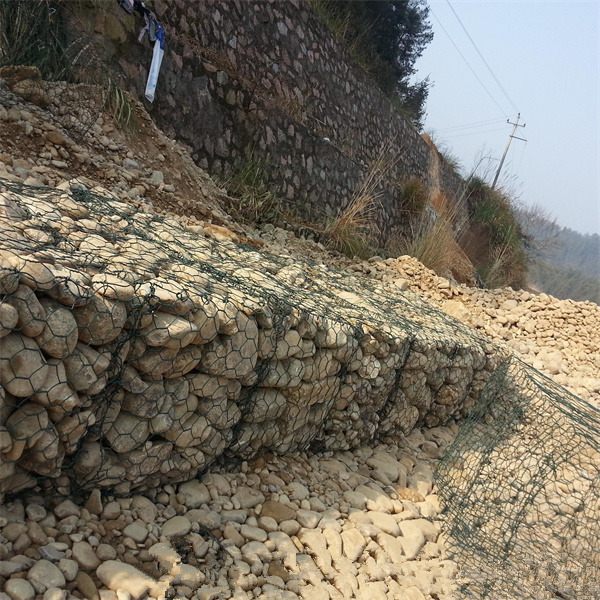Жел . 16, 2024 06:26 Back to list
Premium Gabion Wall Materials for Durable and Stylish Outdoor Solutions
High-Quality Gabion Wall Supplies Building Sustainable Structures
In recent years, the construction industry has witnessed an increasing fascination with innovative and sustainable building materials. Among these, gabion walls have emerged as a popular choice for both aesthetic and practical reasons. Gabion walls, constructed from wire mesh cages filled with rocks, stones, or other materials, offer a sturdy, eco-friendly solution for landscape management, erosion control, and structural support. The key to their success lies not just in the design but in the quality of the supplies used to build them. This article delves into the essentials of high-quality gabion wall supplies, their benefits, and their applications.
What Are Gabion Walls?
Gabion walls are wire mesh containers filled with various materials such as stones, concrete, or other aggregates. The word gabion is derived from the Italian word gabbione, meaning big cage. These walls are robust and versatile, allowing for a variety of uses in civil engineering and landscaping. They are popular for retaining walls, sound barriers, river bank restorations, and decorative features in gardens or parks.
The Importance of Quality Supplies
Building a gabion wall might seem straightforward, but the quality of the materials significantly impacts the wall’s durability, stability, and aesthetic appeal. High-quality gabion supplies include
1. Durable Wire Mesh The wire mesh must be made from high-strength, corrosion-resistant materials such as galvanized steel or PVC-coated wire. This resistance is crucial for the longevity of the gabion wall, especially in environments exposed to moisture or harsh weather conditions. High-quality mesh also maintains structural integrity, preventing deformation over time.
2. Quality Fill Materials The stones or aggregates used to fill the gabions should be selected based on size, weight, and type. The fill material should be heavy enough to ensure stability, with larger stones providing better interlocking and support. Additionally, selecting stones that are locally sourced can reduce the carbon footprint associated with transportation.
3. Proper Accessories High-quality supplies also include construction accessories such as anchors, ties, and brackets. These components help secure the gabion units and ensure they stay in place under pressure. The use of rust-resistant materials for these accessories further enhances the durability of the structure.
high quality gabion wall supplies

Benefits of High-Quality Gabion Walls
1. Sustainability Using local materials and promoting natural aesthetics, gabion walls are an environmentally friendly building solution. They can blend seamlessly with the surrounding landscape while providing a habitat for wildlife.
2. Cost-Effectiveness While the initial investment in high-quality supplies may be higher, the long-term savings due to reduced maintenance and repair costs make gabion walls a cost-effective choice.
3. Versatility Gabion walls are adaptable for various applications, whether for industrial projects, residential landscaping, or public infrastructure. They can be customized in design and size to fit specific needs.
4. Erosion Control Gabion walls are often employed in landscaping to control soil erosion, especially in sloped areas. They help stabilize soil and prevent landslides, enhancing the safety and longevity of the landscape.
5. Aesthetic Appeal With a wide range of fill materials, gabion walls can be designed to match the surrounding environment while adding texture and visual interest to landscapes.
Conclusion
In conclusion, investing in high-quality gabion wall supplies is crucial for ensuring the success, durability, and aesthetic appeal of these structures. By opting for top-notch wire mesh, appropriate fill materials, and quality construction accessories, builders can create sustainable, versatile, and visually pleasing gabion walls. As the demand for eco-friendly solutions continues to grow, gabion walls will undoubtedly remain a favored choice in modern construction and landscaping. With their resilience and charm, they not only serve practical purposes but also contribute to the natural beauty of our surroundings.
-
HESCO Gabion Baskets for Coastal Erosion Prevention
NewsAug.22,2025
-
Longevity and Durability of River Rock Gabion Walls
NewsAug.22,2025
-
How to Integrate Gabion 3D Walls in Urban Planning
NewsAug.22,2025
-
Reno Mattress Gabion Applications in Civil Engineering
NewsAug.22,2025
-
How to Install Wire Mesh for Gabion Baskets Properly
NewsAug.22,2025
-
Best Materials for Filling a Chain Link Gabion
NewsAug.22,2025
-
Wire Mesh Thickness Impact on Gabion Wall Load Bearing
NewsAug.12,2025






